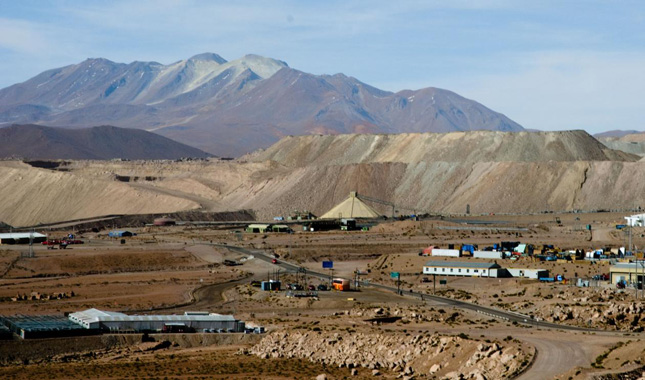-
From Disclosure to Development: Can Transparency Initiatives Improve Natural Resource Management?
November 14, 2017 By Saiyara Khan
“In the end, we all have to be accountable,” said Geoff Healy of BHP Billiton, the largest natural resource extraction company in the world, at a recent event on transparency, anti-corruption, and sustainable development at the Brookings Institution.
“A lot of people that are affected by the extractive industries are not in the group that has access to data,” said the World Bank’s Sheila Khama. A World Bank Group initiative launched this summer, “From Disclosure to Development,” seeks to use data more effectively to “ensure that extractive industries impact positively on the lives of people,” and at the same time empower those most impacted by extraction, said Khama. Access to data, however, is not a panacea for resource-rich countries, which are also often the poorest in the world, she said.
“There is no compelling evidence… that control of corruption has improved over the past 20 years,” said Danny Kaufmann, the president and CEO of the Natural Resource Governance Institute. “Transparency is necessary, but insufficient.”
“Transparency needs to be complemented by rule of law, civic space,” and other measures of good governance that account for communities at the local level, said Ian Garry, the director of accountable development finance for Oxfam America. “These transparency and anti-corruption conversations really need to start at the grassroots level and work their way up.”
A similar data-based project from Results 4 Development, “Leveraging Transparency to Reduce Corruption in the Natural Resource Industries,” will focus on transparency, accountability, and civic engagement and participation in resource-rich countries. The goal of both initiatives, which are supported by the BHP Billiton Foundation, is to present governments, private sector investors, and civil societies with actionable data that will enable change in the development and management of countries’ natural resources.
“Natural resources—oil, minerals, and gas—are finite,” and how they are governed is critical to sustainable development, said Khama. “We get it right once, or we get it wrong forever.”
Read More:
- Can extractive industries help build peace and stability through the development of natural resources?
- The founder of Transparency International, Peter Eigen, offers lessons learned on governance of natural resources in a video interview series.
- Studies show that the risk of civil war is higher in oil-rich countries, and greed and grievances shape the form of conflict.
- UN report highlights how empowering women to manage natural resources can help build peace in conflict-affected places.
Sources: BHP, Brookings, Natural Resource Governance Institute, Oxfam America, Results for Development
Photo Credit: Collahuasi Mine, June 2010, courtesy of Flickr user Pablo Necochea
 A Publication of the Stimson Center.
A Publication of the Stimson Center.



